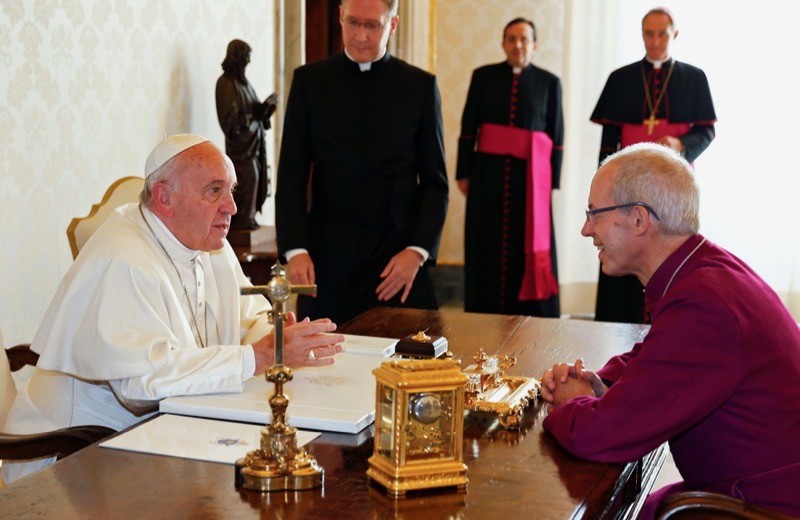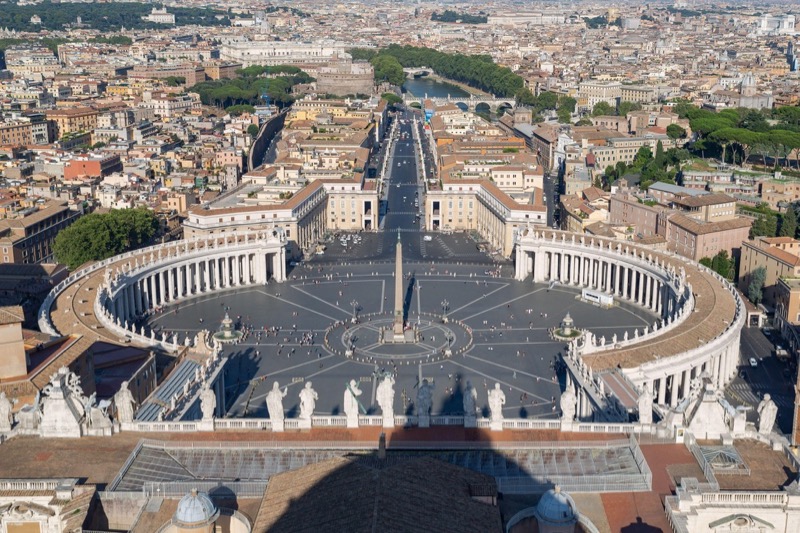One of the four whistleblowers who revealed Cardinal Keith O’Brien’s sexual misconduct which resulted in his resignation has warned that there is still “a deep-rooted clericalism amongst many of the laity” and he called for an end to the “deferential language” used towards priests and bishops.
Ex priest Brian Devlin, who left the priesthood in the 1980s over O’Brien’s double life, told an open forum hosted by Root & Branch Reform and Scottish Laity Network, “we have to have a mature relationship between laity and the clergy” and end designations such as ‘Your Eminence’ and ‘Your Grace’.
The theme of the Forum ‘What Can We Do?’ assessed what can the lay faithful can do in solidarity with survivors and victims of clerical abuse.
The final event in the ‘Stolen Lives’ series was also addressed by canon lawyer Fr Tom Doyle, Francis Sullivan, the executive chair of Mater Hospital Group in Australia and the former CEO of the Catholic Church’s Truth Justice and Healing Council, and A711, the designation one survivor was given when she gave evidence to the Independent Inquiry into Child Sexual Abuse (IICSA).
In Francis Sullivan’s opinion, “We all have to take responsibility for our Church and the culture that we allow to permeate that Church.” He underlined that “part of that culture is the fact that we as laity are too submissive, too compliant, almost too forgiving in the wrong sense of the term, and we need to take collective responsibility for what has happened and the way in which people still are abused within that culture.”
“We as the laity need to see ourselves as a part of the solution. To be part of the solution you need to name those elements of our culture that are dysfunctional and abusive.”
His views on the role of the laity were echoed by Tom Doyle who highlighted that there is “unwillingness or inability” among “many laity, who have been co-opted by clericalism, to speak up” despite the knowing how evil this situation is.
“A lot have remained silent, they have been in a sense collaborators, quietly collaborating, supporting the system that has tried to support itself.”
Victim A711 said she had discovered through her treatment by Westminster diocese after she reported her historic abuse by a priest was “the Church itself as an institution is also an abuser”.
Brian Devlin said there was a role for people in the Church to call out the “malfeasance” of bishops and cardinals within the Church. “I see myself as the grit in the shoe of the bishops,” he explained.
On the role of canon law, Tom Doyle highlighted that “as far as redress and helping people whom the institution has harmed, it is close to useless”.
“It is a legal system that exists in service to the monarchy - the heads of the Church. They are the ones who decide what it is going to do, what it means.”
Author of ‘Cardinal Sin’, detailing the allegations against Cardinal O’Brien, Brian Devlin hit out at the “abusive silence” the Church adopts towards victims.
“It is pretty terrible behaviour for a Church that claims to be what it claims to be. I worked in a health organisation in quite a high position and let me tell you that in the secular world - in business - you would not get away with that sort of behaviour.”
Francis Sullivan said that based on the investigations of the Royal Commission in Australia, canon law enabled the Church “to keep its own business private”.
“The most important thing that was revealed through the scandals in Australia is the Catholic Church should not be able to investigate itself, no matter whether it is a local diocesan process, or a national process set up by the Church, because there is always a conflict of interest.”
“All investigations, complaints and allegations need to be investigated independently and the Church authorities have to cop the results of that and the implications. It is the conflict of interest that drove the secrecy and it is the conflict of interest that uses things like misinterpreting the canon law to keep inquiries and scrutiny away.”
Victim A711 said she found that “canon law can be used by the Church when it suits it, or it can be disregarded”.
She said victims and survivors “almost need a health warning about what will happen when they come forward to report abuse”.
On what should be done to help survivors, Brian Devlin, whom Cardinal O’Brien, a member of the seminary staff at Drygrange, attempted to abuse as a 19-year-old seminarian, called for greater scrutiny of seminary formation.
“We need to look at how priests are formed. I think abuse is learned in seminary. All priests and all bishops go through seminary, so I think there is something there about the process in seminary that is a seedbed for this sort of behaviour.”
“We don't have a healthy culture in the Catholic Church on these sorts of things - there is nowhere to have these conversations. We have got an awful lot of growing up to do as a as an organisation, and as a Church.”
Francis Sullivan called for “a mentality of restorative justice” in which redress covers both financial as well as emotional and pastoral support. “The packages need to be individually designed because people have different needs, and their circumstances are different.”
While victims need to be able access support services, it must not, Sullivan underlined, be assumed that those support services need to be run by the Church because “in many cases people don't want anything to do with the formal church for the rest of their life”.
Tom Doyle urged people to “stop depending on the countless words, promises, procedures and protocols of the talking heads of the institution. It's just words. You need action.”
He said survivors do not trust the institutional Church because “they can’t possibly expect to get adequate support and healing from the outfit that was the source of the pain and the destruction of their emotional stability and their spiritual stability.”



 Loading ...
Loading ...